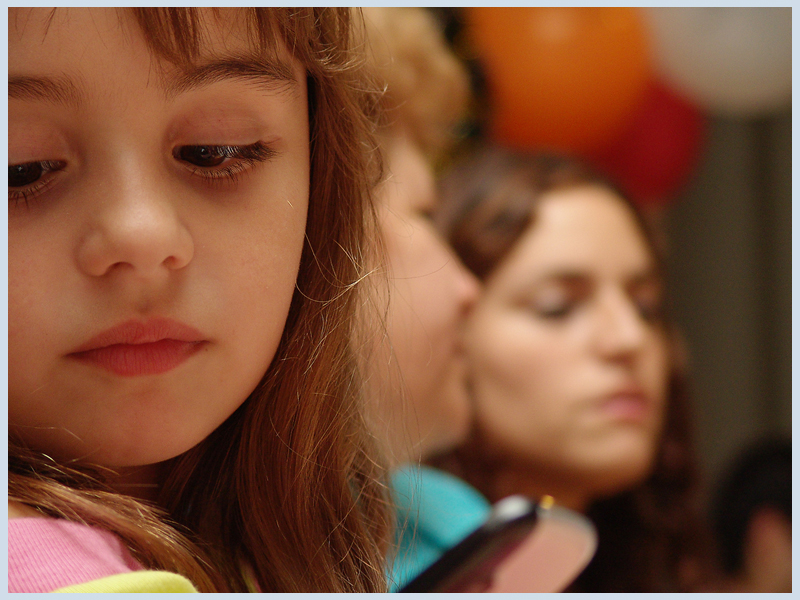Foster and adoptive families who care for children who have been separated from their parents because of abuse, neglect or abandonment are especially vulnerable to reports of abuse and neglect; often experience increased scrutiny; and may be more likely to be the target of maltreatment allegations than other families in their communities. The problem of false child abuse and neglect allegations against adoptive and foster families exists in New York and throughout the country. Under no circumstances do we condone child abuse or neglect in any family. However, we recognize there are circumstances which make adoptive and foster families especially vulnerable to reports of abuse and neglect and susceptible to misjudgments.
Allegation Innoculation Workshop Summary
Dr. Kunstal began by saying that, for a professional, it is difficult to say, “It didn’t happen,” but anyone who works with adopted and foster kids realizes that things are not always what they seem. Maltreated kids see all families as potential abusers, and if we don’t deal with the situation positively, we are continuing the abuse. He emphasized that after the abuse charges are made, it’s too late and parents often lose control of the situation–the best thing to do is to prepare for the possibility and if it happens, use it therapeutically.
According to Dr. Kunstal, foster and adoptive families are sometimes guilty of acts of “omission,” because they haven’t gotten records and haven’t been told important information. He takes for granted that all kids from “The System” have been abused in some way, often they haven’t been treated like kids. Many of these children have difficulties with intimacy, and the best parents may be at the highest risk.
The issues of abuse can’t be shoved aside, says Dr. Kunstal: “Unless the children deal with their past abuse, every adult they meet is the one who hurt them.” Families who run into the most problems are often the ones who don’t deal with the abuse issues head on.
The main causes of false allegations are:
- distortions and misperceptions
- sabotage
- anger and resentment/desire for revenge
- coercion – coercion by therapists can occur when the therapist expects something or has a rigid “response set.” Therapists need to be open to any eventuality.
Why do false allegations occur?
- misinterpretation and distortion
- misunderstood behavior
- deja vu
- past victimization (self-loathing, self-destruction)
- resistance to attachment
- control
- splitting
- response to expectations
- justification for difficulties
- learned blame
- attention and affection
- PTSD (Post-Traumatic Stress Disorder)
- false memories
- coercion
- belief in and suspicion about children in placement
The double bind of allegation: “If you say you did not abuse or hurt the child, it could be that you’re guilty, but in denial. Thus, proclaiming your innocence is further evidence of your guilt.”
The goal for parents is to use the false allegations as a therapeutic crisis for the child and family.
- The preliminary steps:
- know the child protection laws
- know agency procedures for investigation
- know the resources available
- At the beginning of the placement process:
- obtain adequate background information
- discuss the background with the caseworker
- be a “team player”
- develop a team-based plan for care
- meet initially alone with the child’s therapist
- discuss birthparent involvement with the caseworker and therapist
- accept and be sensitized to the child’s special vulnerabilities
- Upon placement:
- be straightforward about behavior problems
- help the child develop insight
- explain your behavior
- ask permission
- insist on open communication (make sure you have another kid who operates as your “snitch patrol”)
- begin therapy with someone you respect
- develop an ongoing support system
- have clearly defined and understood family rules
- have open discussion with the caseworker and with involved professionals
- discuss with the therapist his/her position and procedure for assess all allegations
- do not accept only individual therapy for your child (a close and affectionate relationship with a therapist may prevent effective bonding with a family–the best therapy relationship is as a “consultant”)
- share and discuss each discuss each problem (make sure and mention unmentionable problems)
- document the child’s behavior and progress toward goals
- insist on using your established family physician
- be empathetic and sensitive to the child’s special needs
- do not keep any secrets or developing secrets
Source: Presentation by Dr. Frank Kunstal at the Coalition Statewide Training Conference, reported by Diane Hillmann. Originally published in the Newsletter of the Adoptive Families Association of Tompkins County
Additional Resources and ideas for parents and professionals to consider
- Help I’ve Been Reported to the Hotline, by Margaret Burt, Esq.
- Allegation Innoculation
- Allegations Happen: How to Prevent and Survive Them
- Dealing with the Effects of Child Abuse and Neglect Allegations
- Five Practical Steps Foster Parents Can Take in a Crisis (pdf)
- Maltreatment Myths (pdf)
- Standing in the Shadow of a Doubt (pdf)
- Documentation Advice from Foster Parent legal Solutions (pdf)
- What Happens to Unfounded Reports and Records in New York State?
- How to Seal and Expunge New York State Central Registry Reports (pdf)
- Penalties for False Reports to Child Protective Services (CPS) – Advocacy/Issue paper (pdf)
- It’s All in The Preparation: Advice for Preparing Foster and Adoptive Parents for Allegations (pdf)
- Best Practice Guidelines for Investigating Maltreatment Reports for Children in Care
- Anonymous versus Identified Reporting of Child Maltreatment (pdf)
- Review and Expunction of Central Registry Records: State by State Laws
- Allegations of Maltreatment Against Foster Parents (pdf)
- Foster Parent Allegation Data: New York State Office of Children and Family Services (OCFS) 2006-2010
- National Foster Parent Coalition for Allegation Reform Online Support Group
If you are facing allegations and feel you would like to talk to someone about this, please call our Help Line at (646) 688-4321.

